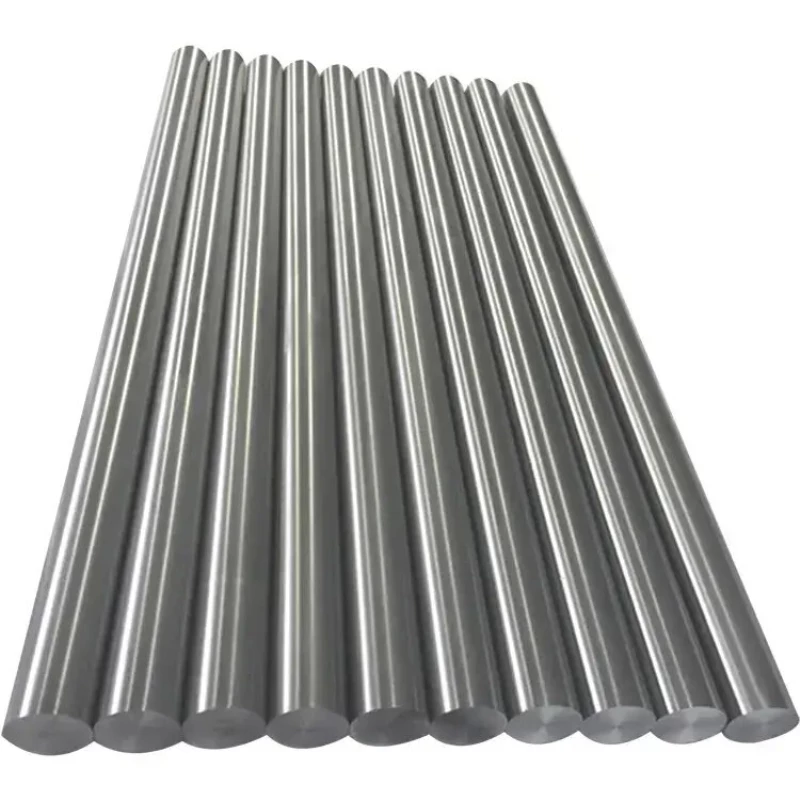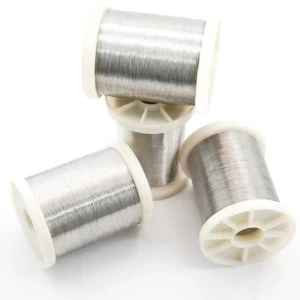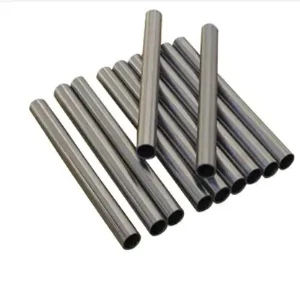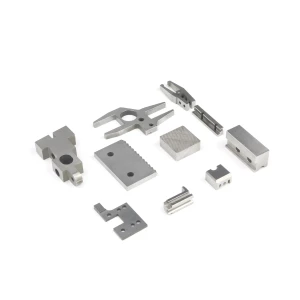Ti-6242 is lightweight and resistant to high temperatures, making it a material that is difficult to produce using traditional techniques. Specifically titanium powders, and has industry-leading in-depth knowledge of powder manufacturing and how to control the manufacturing process to produce high-quality parts. Producing high-quality powders by controlling the oxygen content in the powder is critical for additive manufacturing applications.
For aerospace, military, nuclear energy and motorsport, which are highly regulated industries, performance is more important than cost. As a reactive alloy, Ti-6242's primary distinction from other titanium alloys is the material's mechanical properties, enabling high-temperature and creep-resistant applications.
Ti-6242 offers high mechanical strength, weldability, high temperature stability and creep resistance up to 500-550°C. Other common titanium alloys, notably Ti6Al4V, typically operate at 350°C, so Ti-6242 is capable of operating at higher temperatures.
Ti6242 titanium rod
The strength of Ti6242 titanium rod is as high as 540℃, which is higher than Ti-811 alloy. The specific strength is better than Ti-2.3Al-11Sn-5Zr-1Mo-0.2Si alloy, and the creep performance is better than Ti-811 alloy and equivalent to Ti-2.3Al-11Sn-5Zr-1Mo-0.2Si alloy. The alloy has good processing and welding properties. Semi-finished products include plates, bars, forgings, rings and castings, etc., which are mainly used to manufacture aircraft engine compressor casings, aircraft skins, etc. The maximum long-term operating temperature is 500℃.
Ti 6242 applications and special requirements
Ti 6242 titanium rod has been used in the manufacture of aircraft engine compressor casings in my country. The alloy still has good thermal stability after being heated at 540°C for 1000 hours. Type I and II castings used in the aerospace industry must undergo hot isostatic pressing, while castings for general purposes only need to be annealed.
Show details of Yunch Ti 6242 titanium rod
Ti-6242 titanium rod has high mechanical strength, weldability, high temperature stability and creep resistance up to 500-550°C
The mechanical properties of Ti6242 can meet the requirements of high temperature and creep resistance applications.
Ti-6242 is also a material with great potential for space applications. Its temperature range covers cryogenic temperatures up to 500°C. Under these extreme conditions, the TI-6242 can handle varying temperature changes.
Performance comparison between Gr5 and Ti6242
Gr5 titanium alloy is a Ti-Al-V series α-β titanium alloy developed in the United States in 1954. Contains 6% of the alpha-stabilizing element Al and 4% of the beta-stabilizing element V. The main features of Gr5 titanium alloy are excellent comprehensive properties and good process characteristics. The use temperature is 350°C. The alloy is widely used and accounts for almost half of the total production of titanium alloys.
Ti6242 is a near α-type titanium alloy with a nominal composition of Ti-6Al-2Sn-4ZR-2Mo-0.1SI.
It contains α-stabilizing element Al, neutral elements Sn and Zr, isomorphous β-stabilizing element Mo and eutectic β-stabilizing element Si. Mo can improve tensile strength and stability at room temperature and high temperature. The joint action of Al, Sn, and Zr can maintain the high-temperature strength of creep for a long time. The addition of Si can cause the precipitation of the silicide dispersed phase, which is beneficial to improving high-temperature creep strength. The alloy also has high strength at 540°C, with a maximum long-term operating temperature of 500°C.
Ti 6242 casting properties
This alloy contains Al and Sn, has good casting properties, is easy to form, and has no tendency to heat cracks. Special-shaped castings of different shapes, sizes, and wall thicknesses can be cast in molds suitable for casting titanium alloys.
Ti 6242 welding performance
Ti 6242 alloy can be used for spot welding, seam welding, argon tungsten arc welding and electron beam welding. The joint strength coefficient can reach 100%, but the plasticity of the welding area is not high.
Ti 6242 corrosion resistance
TA19 alloy has good corrosion resistance. But it is also sensitive to hot salt stress corrosion and exhibits delayed fracture in crack tests in room temperature salt solutions. This alloy is more sensitive to salt stress corrosion than the Ti-2.3Al-11Sn -5Zr-1Mo-0.2Si alloy, but not as sensitive as the Gr5 and Ti-811 alloys.
What high temperature applications is Ti-6242 suitable for?
Ti-6242 is suitable for manufacturing lightweight components where high temperature stability is critical, such as turbine components, afterburner structures, high-pressure compressor blades and fuselage hot ends in the aerospace industry. Some cold-end areas will simply use titanium alloys with low-temperature properties, while hot-end areas will benefit from the high-temperature stability provided by Ti-6242.
The main consideration in these applications is that different applications require different materials, so it is critical to select the appropriate material based on the operating temperature requirements.
Ti-6242 is also a material with great potential for space applications. Its temperature range covers low temperatures to 500°C. Under these extreme conditions, Ti-6242 can cope with different temperature changes.
The challenge in aerospace is always trying to get the highest mechanical performance at the lowest possible weight at the highest temperatures. In areas with higher temperatures, nickel superalloys are often used, but these alloys are twice as dense as Ti-6242. Therefore, switching to Ti-6242 can reduce the weight of engines in the aerospace industry while still meeting temperature requirements. These features are also suitable for racing industry applications, where the lightweight provided by Ti-6242 helps improve engine performance and fuel efficiency in these industries.
But 3D printing of Ti-6242 is challenging because it is prone to cracking due to residual stress. 3D printed Ti-6242 meets the design requirements for high-speed rotating engines in the medium and high temperature zones, where the fatigue properties of the material are crucial. The highly spherical powder will improve processability and help keep the printing process stable and prevent cracking. The fatigue properties of materials are sensitive to defects, and one of the best strategies to reduce defects in additive manufacturing is to control the raw material.
We have more categories for you. lf you can't find the products you want above,just fill in the form and tell us whatproducts you want to import from China.
















